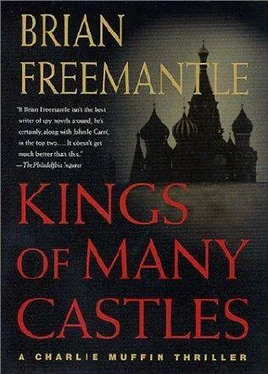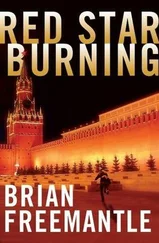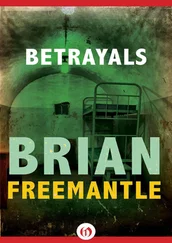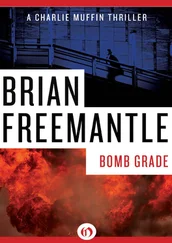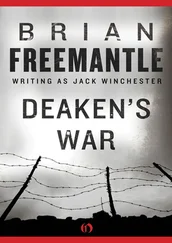Brian Freemantle - Kings of Many Castles
Здесь есть возможность читать онлайн «Brian Freemantle - Kings of Many Castles» весь текст электронной книги совершенно бесплатно (целиком полную версию без сокращений). В некоторых случаях можно слушать аудио, скачать через торрент в формате fb2 и присутствует краткое содержание. Жанр: Шпионский детектив, на английском языке. Описание произведения, (предисловие) а так же отзывы посетителей доступны на портале библиотеки ЛибКат.
- Название:Kings of Many Castles
- Автор:
- Жанр:
- Год:неизвестен
- ISBN:нет данных
- Рейтинг книги:5 / 5. Голосов: 1
-
Избранное:Добавить в избранное
- Отзывы:
-
Ваша оценка:
- 100
- 1
- 2
- 3
- 4
- 5
Kings of Many Castles: краткое содержание, описание и аннотация
Предлагаем к чтению аннотацию, описание, краткое содержание или предисловие (зависит от того, что написал сам автор книги «Kings of Many Castles»). Если вы не нашли необходимую информацию о книге — напишите в комментариях, мы постараемся отыскать её.
Kings of Many Castles — читать онлайн бесплатно полную книгу (весь текст) целиком
Ниже представлен текст книги, разбитый по страницам. Система сохранения места последней прочитанной страницы, позволяет с удобством читать онлайн бесплатно книгу «Kings of Many Castles», без необходимости каждый раз заново искать на чём Вы остановились. Поставьте закладку, и сможете в любой момент перейти на страницу, на которой закончили чтение.
Интервал:
Закладка:
“How do you read that?” asked Jeremy Simpson.
“I don’t,” said Charlie. “They might not have found it yet. If they have, they might be holding it back to be some sort of bargaining counter, to recover with the Russians. Or they think it’s something only they’ve discovered and don’t intend sharing it at all. If they haven’t got George Bendall they haven’t got anyone who really matters.”
“Neither have the Russians,” Simpson pointed out.
“Let’s talk about that!” demanded Patrick Pacey, more to the lawyer than anyone else. “How clear are we, if what the director said is provable: that Bendall didn’t shoot anyone?”
They were aware of Anne Abbott, Charlie reminded himself. And there seemed no longer any reason why he shouldn’t refer to her. Charlie said, “A lawyer from the embassy’s legal department came back from Moscow with me. She’s postponed her return, because of this, to discuss it and possibly get different instructions.”
“Those instructions will have the advantage of Russian law, which I don’t know in sufficient detail,” said Simpson. “We accept there’s a conspiracy, which Bendall has in some way to be part. He was at the scene, he had a gun and he fired it, even if he didn’t hit anybody. If the bullets aren’t his I think it helps greatly with a mitigation plea, like the fact that he was drunk and that there’s a mental problem. If we get the real conspirators in the dock we could possibly show Bendall to be the totally manipulated dupe.”
“And if we don’t get the real conspirators in court?” persisted the political officer.
“We’ve got a defendable not guilty plea to murder, a guilty pleawith the mitigation I’ve talked about-to conspiracy to murder,” assessed Simpson. “But let’s not lose sight of the fact that under English law conspiracy to murder-premeditatedly planning a killing rather than committing the act in a moment of anger or passion-is held to be worse than the actual crime itself.”
“So we’re not a great deal further forward?” said Hamilton.
“I’m not qualified to offer a legal opinion,” said Patrick Pacey. “What I can assess is our ability to offer a political and diplomatic defense and I think that’s gone up tremendously.”
“And in so doing continues to justify this department,” agreed the director-general, looking pointedly at his deputy.
And his continued posting in Moscow, Charlie recognized. He wondered how Natalia would feel about that when he told her. If he told her. He probably wouldn’t. He hadn’t talked to her in any detail about the initial criticism in London which was now virtually immaterial anyway. It had been a more conscious decision to withhold the uncorroborated ballistic findings even before she’d told him of the FSB confrontation during the previous evening’s call. Despite getting the unintended admissions and concessions from the insufficiently programmed secondary witnesses, she’d gone farther than he would have liked or suggested in summoning the chairman of the FSB, particularly with the presidential uncertainty and it surprised him. He was even more anxious now to get back to Moscow and talk to her about it. What else was there for the two of them to talk about? Nothing, Charlie decided at once; no commitment, no recriminations therefore no guilt.
Jocelyn Hamilton said, “Are we in any way affected by the dismissal of the FBI director?”
“I don’t see why we should be,” said Pacey. “It’s obviously a political gesture, a pretty dramatic attempt to recover by the Americans; desperate, almost.”
“Might that not indicate that they haven’t got the ballistic analyses yet?” queried Dean.
“I don’t think so,” Charlie came in quickly, always aware that Sir Rupert was an academic, not a sewer soulmate. “You want to burst a dam, you set a heavy enough charge to ensure everything’s engulfed. The entire responsibility for the breakdown between America and Russia has been dumped upon their director, who’s blown away; charged, convicted and sentenced if not to death then to career oblivion. Washington’s adopting Russian precedent-purging-is easier for Russian to understand. And, hopefully, to be enticed back into the sharing, communal fold.”
“We do need to be part of a sharing, communal fold, don’t we?” suggested Sir Rupert Dean.
Charlie was way ahead of the older man’s reasoning-why, in fact, irrespective of today’s discussion, he’d never intended sharing the Woolwich Arsenal doubts until he got back to Moscow-but showing the deferential diplomatic awareness that would have surprised everyone in the room, he said, “I think so, sir, for all the reasons we’ve already discussed.”
“So we’ve got the way to achieve it, haven’t we?” said Dean.
Charlie smiled, as if in initial understanding. “Yes we have, haven’t we?”
Viktor Ivanovich Karelin was someone who strove-and succeeded-to be the sort of man crowds were made of, inconspicuous, unrecognized and unknown. He actually cultivated the amorphic grayness-gray face, gray hair, gray suit-traditional for an intelligence head but which was all the more necessary in the current leadership flux. He was a KGB-era bureaucrat, politically-and willingly-promoted by the president as a hopeful bridge across which the old would cross to the new in attitude and allegiance. Which some, although not all, attitudes and allegiances had and which added to what the pliably adaptable Karelin viewed as a major personal problem, his now being stranded in the middle of the bridge without knowing which side visibly to head for. Sending Gennardi Mittel in his place had put him on the traditional side of the divide. He had never, in a million years, expected the unthinkably direct-humiliating-challenge. Which had to mean that the intelligence he had so far had analysed on the likely succession-and Aleksandr Mikhailevich Okulov’s strength-was questionable. In which case there had potentially been a very bad miscalculation-a mistake for which professional analysts would be called to explain-and from which he had to recover. Or at least put himself back in the middle of the bridge. The problem was getting back there, without losing any further face. The truth-or what he believed to be the truth-would actually add to the humiliation.
There was none of the arrogant strut of his previous day’s emissarywhen Karelin entered the Kremlin room, although there was a self-enclosed confidence about the man when he sat, folded his hands in his lap and waited to be addressed. I’ve come this farreluctantly-now you come to me. Only Yuri Trishin knew what the FSB chairman looked like, so completely did Karelin preserve his anonymity and that recognition came from an unpublished photograph on presidential record, not from any personal meeting. The photograph had been badly lit, to be intentionally misleading. Natalia’s immediate impression was of a self-assured professional. She hoped she was right. It would mean- should mean, if she were right-that he wouldn’t be taking this personally. It would have been worrisome that he looked intently and undividedly at all three of them-herself last and most intently of all-as if identifying them had she not earlier that morning received the acting president’s signed congratulations for her previous day’s handling of the FSB opposition.
The moment for their meet-in-the-middle diplomacy, decided Natalia. “Thank you, Chairman Viktor Ivanovich, for coming today.”
“I’m afraid there was a misunderstanding,” said Karelin. There was a slight sibilant speech impediment.
“Which is what we believed it to have been,” said Natalia. Hands extended, hands touched: no embarrassment.
“I would like to help the commission, if I could.”
Читать дальшеИнтервал:
Закладка:
Похожие книги на «Kings of Many Castles»
Представляем Вашему вниманию похожие книги на «Kings of Many Castles» списком для выбора. Мы отобрали схожую по названию и смыслу литературу в надежде предоставить читателям больше вариантов отыскать новые, интересные, ещё непрочитанные произведения.
Обсуждение, отзывы о книге «Kings of Many Castles» и просто собственные мнения читателей. Оставьте ваши комментарии, напишите, что Вы думаете о произведении, его смысле или главных героях. Укажите что конкретно понравилось, а что нет, и почему Вы так считаете.
